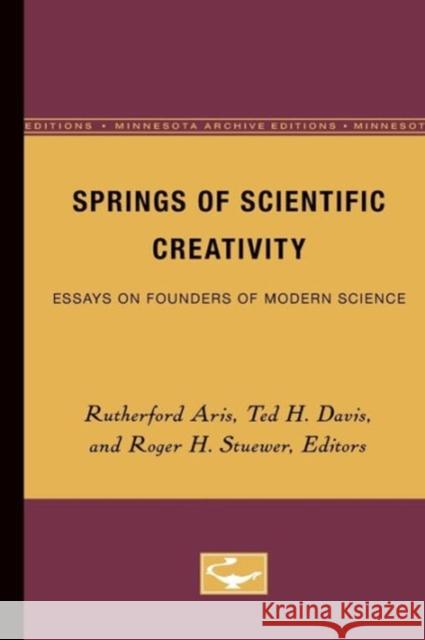Springs of Scientific Creativity: Essays on Founders of Modern Science » książka
Springs of Scientific Creativity: Essays on Founders of Modern Science
ISBN-13: 9780816668304 / Angielski / Miękka / 1983 / 356 str.
Springs of Scientific Creativity was first published in 1983.Mathematician Henri Poincare was boarding a bus when he realized that the transformations of non-Euclidian geometry were just those he needed in his research on the theory of functions. He did not have to interrupt his conversation, still less to verify the equation in detail; his insight was complete at that point. Poincare's insight into his own creativity -- his awareness that preliminary cogitation and the working of the subconscious had prepared his mind for an intuitive flash of recognition -- is just one of many possible analyses of scientific creativity, a subject as fascinating as it is elusive.The authors of this book have chosen to search for the springs of scientific creativity by examining the lives and work of a dozen innovative thinkers in the fields of mathematics, physics, and chemistry from the seventeenth down to the mid-twentieth century. First prepared for delivery in a lecture series held at the University of Minnesota, these essays delve into the social, psychological, and intellectual factors that fostered creativity in the lives of Galilei Galileo, Isaac Newton, J. P. Joule, James Cler Maxwell, Josiah Willard Gibbs, Lord Rayleigh, Elmer Sperry and Adrian Leverkuhn, Walter Nernst, Albert Einstein, Erwin Schrodinger, Michael Polyani, and John von Neumann.The contributors are Thomas B. Settle, Richard S. Westfall, Donald S. L. Cardwell, C. W. F. Everitt, Martin J. Klein, John N. Howard, Thomas P. Hughes, Erwin N. Hiebert, Stanley Goldberg, Linda Wessels, William T. Scott, and Herman H. Goldstine.











